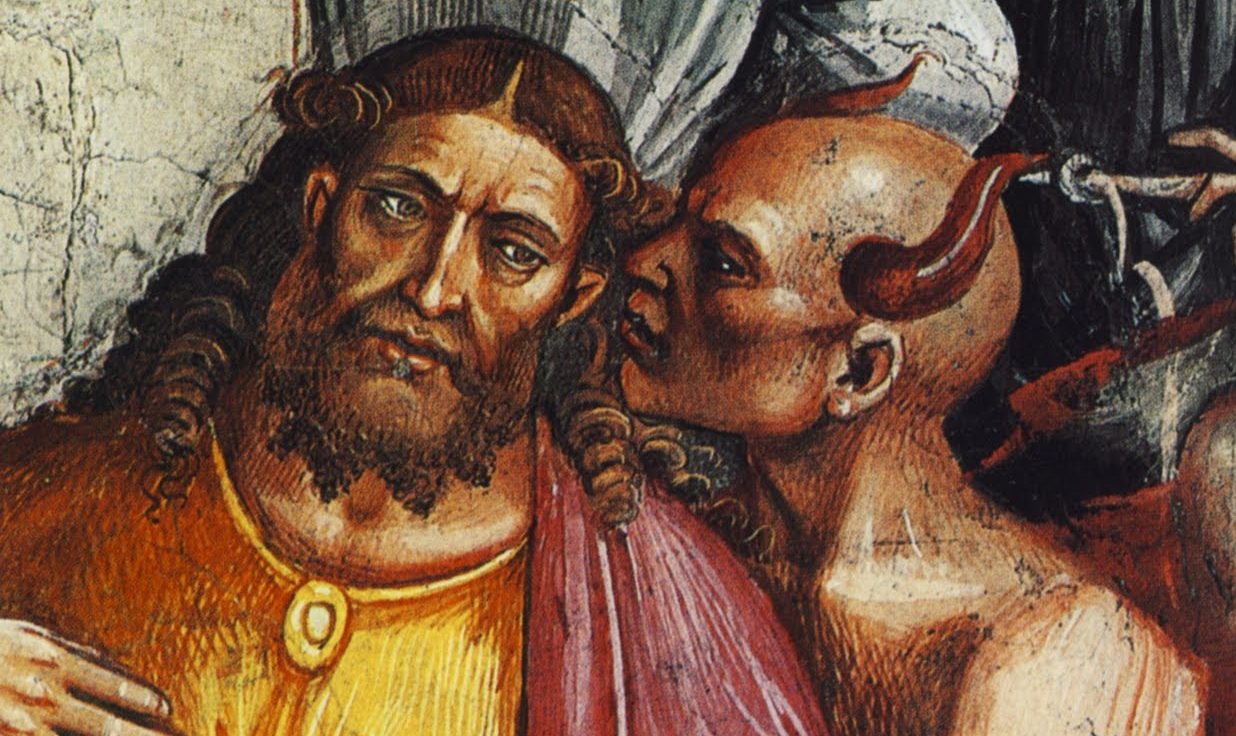
18 Jun Reflections on False Prophets
Not every one who says to me, ‘Lord, Lord’, shall enter the kingdom of heaven, but he who does the will of my Father. Now who are they, who say ‘Lord, Lord’ so insistently, but who somehow miss the whole point? According to the Gospel, they are false prophets, dressed as sheep but inwardly ravenous wolves. Outwardly they seem to be disciples, but in their hearts they do not want to be led, but to dominate and consume. And in the lines immediately following we find out more: On that day many will say to me, ‘Lord, Lord, did we not prophesy in your name, and cast out demons in your name, and do many mighty works in your name?’ And then I will declare to them, ‘I never knew you; depart from me, you evildoers.’
They speak of Divine things, they expose and denounce evil, they act mightily for God and for His Church. And yet all of this is really about them, not about God. They contemplate themselves, as in a mirror, exhilarated by the spectacle of their fidelity, when all the time they are merely nourishing their self-regard. Their impressive championing of the Divine cause does not open them up to God, but merely closes them in upon themselves, where in truth they find the satisfaction they seek. They seem to accomplish so much for God – but all along they are evildoers. All this shows us is that being a discipleisn’t something we can contemplate in ourselves as in a mirror. In fact, it doesn’t involve seeing ourselves at all. It means turning away from ourselves, towards the love of God.
And by the love of God is meant not our love for God, but His for love us, and ultimately the Love that He Himself is. It is in light of this that all self-seeking, and especially religious self-seeking, is denied us. How can we seek ourselves in God, when even God does not seek Himself in Himself? God is Love, and so offers no home for self-seeking, not even His own. If we seek ourselves by trying to ascend to Him, then we will certainly miss Him, because He is in fact travelling in the opposite direction: He is descending, coming out of Himself and towards us, for our sake leaving Himself behind, which is what we in turn are called to do. God, least of all, contemplates Himself as in a mirror. Beyond Himself, He seeks those whom He loves. And if we are to be His disciples, we must imitate Him, beyond all self-seeking, in the love that reaches out to the other. This reaching out is not for our sake, so that the other might bring us to completion, but, like God, it is for the sake of the other himself.
Beyond the hall of mirrors, then, being a disciple is to be drawn into a relay of self-dispossession. God empties Himself for the sake of what is other than Himself, and we must receive from Him this same movement, leaving ourselves for others, whom in turn we hope to draw into this way of being. And this way of being is charity – originating in God, and poured out into the world. At no point, either in God or in us, does Love permit the contemplation of the self. To be held fascinated before the mirror, seeking our own completion, is not the kingdom of heaven, but something very like hell.
And so not everyone who says to me ‘Lord, Lord’, shall enter the kingdom of heaven, but he who does the will of my Father. The will of the Father is Love: the Love in which the Son is begotten eternally in the Spirit, the Love by which this Trinitarian life is poured out upon creation, the Love by which the world not only receives the Trinity but is called to share in it. The Word became flesh to embody this Love, to manifest the Father through the Son in the Spirit: and entering into this Love is what the Gospel calls entering the kingdom of heaven. This kingdom is nothing other than the Divine life itself, the Trinitarian life of Love, in which we can come to share. We cannot enter there by saying Lord, Lord as self-assertion and the means to our own fulfilment. We can enter the kingdom only in imitation of the Incarnate and Crucified Son, who lives and dies in giving Himself away.
Such participation in Christ is alone the good fruit of which the Gospel speaks. And it is nourished in the Eucharist. We approach as sheep, not as wolves: not ravenously, in order to feed ourselves, but as disciples of love, so that expanding outwards from the moment of communion we may receive the strength to leave ourselves behind so as to be able to love others. In the Eucharist, we do not feed on Love, but Love feeds on us: we do not draw Love into ourselves, so as to fill us up, but Love draws us into its own dimensions, transforming us for its work, turning us into places in which it can express itself.
By Fr Philip Cleevely, Cong. Orat.

